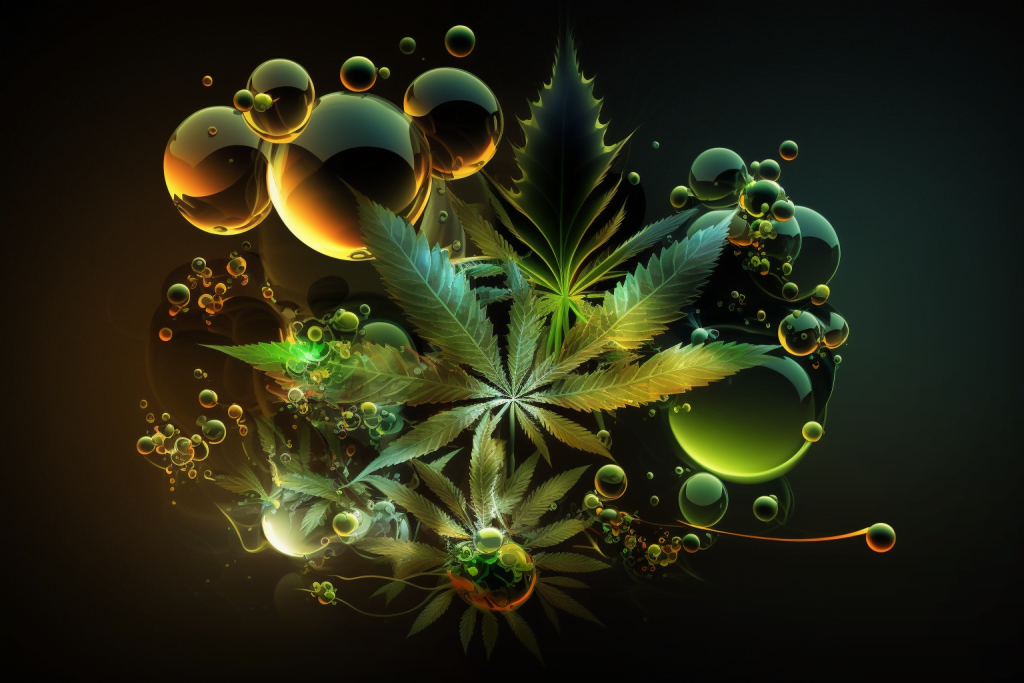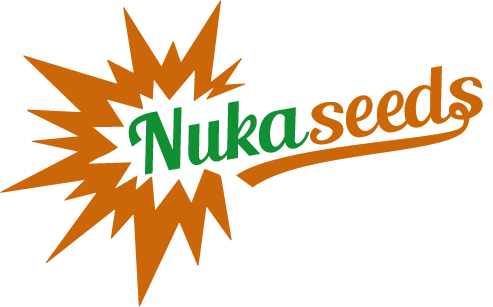English
If you have even a minimal knowledge of the cannabis plant, you know that it contains substances that have many properties. These substances are called cannabinoids. The most well-known of these are THC and CBD, but there are many others that have great effects on human health. Although there are more than a hundred of them, we will only briefly introduce the most famous ones.
THC (delta-9-tetrahydrocannabinol)
- Euphoria, relaxation and mood enhancement
- Pain relief
- Nausea and vomiting (especially in patients undergoing chemotherapy)
- Increased appetite
- Primary psychoactive ingredient in cannabis
- Acts on CB1 receptors in the brain
- May cause side effects such as anxiety, paranoia or increased heart rate in some individuals
– Also used in the treatment of irritable bowel syndrome, muscle spasticity or sleep disorders

CBD (cannabidiol)
- Relieve anxiety and stress
- Anti-inflammatory effects
- Analgesic effects (pain relief)
- Anticonvulsant effects (reducing convulsions in epilepsy)
- Neuroprotective effects (may help protect the nervous system)
- Non-psychoactive component in cannabis
- Acts on multiple receptors in the body such as 5-HT1A, TRPV1 and GPR55
- Rarely causes side effects
– Studies suggest potential use in the treatment of psychotic disorders such as schizophrenia
CBC (cannabichromene)
- Anti-inflammatory effects
- Analgesic effects
- Antidepressant effects
- Non-psychoactive cannabinoid
- Acts on TRPV1 and TRPA1 receptors involved in pain and inflammation perception
Has potential in the treatment of skin conditions such as acne due to its anti-inflammatory and antibacterial effects.

CBG (cannabigerol)
- Anti-inflammatory effects
- Analgesic effects
- Antibacterial effects
- Potential treatment for glaucoma (lowering intraocular pressure)
- Non-psychoactive cannabinoid
- Acts on CB1 and CB2 receptors, which may help reduce inflammation and pain
- May promote neurogenesis (growth of new nerve cells)
Potential use in the treatment of Crohn’s disease, ulcerative colitis and other digestive disorders.
CBN (cannabinol)
- Analgesic effects
- Sedative effects
- Potential treatment for insomnia
- Mildly psychoactive cannabinoid
- Formed when THC is degraded, losing some of its psychoactive effects
- Acts on CB1 and CB2 receptors
Studies suggest potential use as an alternative to benzodiazepines for the treatment of anxiety and insomnia.

THCV (tetrahydrocannabivarin)
- Potential effects on weight management and metabolism
- Anticonvulsant effects
- Non-psychoactive cannabinoid
- Structurally similar to THC but with different effects
- Acts as an antagonist at CB1 receptors
Studies are exploring its potential in the treatment of diabetes, obesity and cardiovascular disorders.
CBDV (cannabidivarin)
- A non-psychoactive cannabinoid
- Anticonvulsant effects
- Potential treatment for autism and neurodevelopmental disorders
- Structurally similar to CBD but with different effects
- Acts on TRPV1 receptors and possibly other molecular targets
Studies are exploring its potential in the treatment of epilepsy and neurodevelopmental disorders such as Rett syndrome and Fragile X syndrome.
Delta-8-THC (delta-8-tetrahydrocannabinol)
- A mildly psychoactive cannabinoid
- Chemically similar to delta-9-THC but with a lower intensity of effects
- Acts on CB1 and CB2 receptors
Has potential in the treatment of nausea and vomiting, especially in patients undergoing chemotherapy. May help in reducing anxiety and improving mood
CBDA (cannabidiolic acid)
- A precursor to CBD in cannabis plants
- Non-psychoactive cannabinoid
- Acts on COX-2 inhibitors that may reduce inflammation and pain
Has potential in the treatment of inflammatory diseases such as rheumatoid arthritis.
THCA (tetrahydrocannabinolic acid)
- A precursor to THC in cannabis plants
- A non-psychoactive cannabinoid
- Has anti-inflammatory, neuroprotective and antiemetic effects (relieves nausea and vomiting)
Studies suggest potential use in the treatment of neurodegenerative diseases such as Parkinson’s disease.
It is important to emphasise that research on cannabinoids is still at an advanced stage and therefore new information is constantly emerging about their effects and potential therapeutic properties. Before taking cannabinoids, it is important to consult your plans with your doctor and keep up to date with new research and studies.
If you are interested in other interesting facts from the world of cannabis, you can take a look at our News section, where you will find a lot of useful information from the world of cannabis.
Published by Jan Veselý
10/04/2023choose and buy cannabis seeds from our offer
our pleasure

























I would add the current HHC hit
https://en.wikipedia.org/wiki/Hexahydrocannabinol